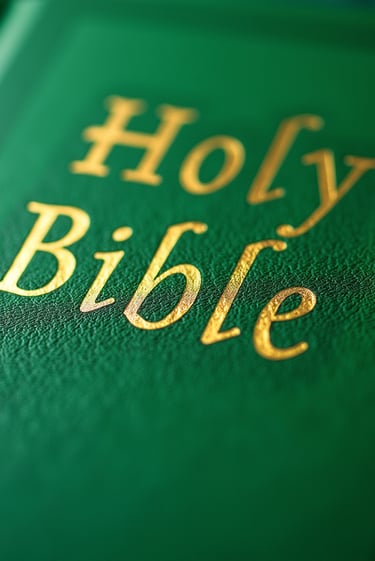

Adam was given
one wife, not 2 or 3
The King must be an Israeli chosen by God, and must not multiply horses,
wives, silver or gold.
A casual reading of this passage in its context, would warn us from concluding that this meant the King was limited to one horse, one wife, one piece of silver and one piece of gold. But sadly, tradition is want to ignore contexts, grab isolated texts and abuse them to their own purposes.
Earlier in chapter 8, the Lord had warned Isrrael about complacency when they enjoyed the abundant fruits of this wonderful Land flowing with milk and honey, a figure for divine provision. The Lord had warned Israel they were not to forget him when their gold was multiplied, did this mean the common people could multiply gold but the King was restrained?
Likewise, later in Deut. 21:15 the Lord gave instructions for those who had more than one wife, was the King limited to one wife but the common man could have more? Deut.21 also instructs those who chose to take another wife from among the captive women, did this exclude the King because he was limited to one wife?
These instructions the King would appreciate as he wrote his copy of the Law.
The scriptures must never be read in isolation, we must compare spiritual with spiritual, test things differing and rightly divide the word of truth to find the balance and an accurate understanding.
The ultimate refutation against those who demand this passage means monogamy only is found in Nathan's story and explanation against King David.
And Nathan said to David, Thou art the man. Thus saith the LORD God of Israel, I anointed thee king over Israel, and I delivered thee out of the hand of Saul; And I gave thee thy master's house, and thy master's wives into thy bosom, and gave thee the house of Israel and of Judah; and if that had been too little, I would moreover have given unto thee such and such things. 2Sam. 12:7-8.
Did the Lord limit Kings to one wife in Deut.17, then years later give multiple wives to David contrary to his own instructions in Deut.17? Hardly!
The passage makes the matter clear for us.
The multiplication of horses was to prevent any return to Egypt.
The wives were not to be multiplied so as to turn away his heart.
But there is something else to consider. Deuteronomy 17:17 is speaking about TREATY MARRIAGES, not polygyny.
Deuteronomy 17:17 begins in verse 14 and continues through verse 20. This passage is addressing the king IN HIS OFFICIAL CAPACITY as king, NOT as an individual. It is civil polity being dealt with here.
There are four prohibitions. The first is to the nation in general: they may not appoint a king who is not an Israelite, a member of the covenant nation.
The second, third, and fourth prohibitions are directed to the king himself as the representative of the nation: 1) he may not multiply horses 2) he may not multiply wives and 3) he may not greatly multiply silver and gold.
The horse is an instrument of war. This injunction does not forbid the king from owning horses, or even a vast number of them, for his personal industry—as a breeder, for example.
The king cannot conscript the entire nation into the military. The third prohibition, against greatly multiplying silver and gold, likewise concerns the State. It does not prohibit the king from the legitimate acquisition of wealth. It is not a violation of this law for the king to have millions or even billions of shekels in his personal bank account. It is TAXATION and the royal treasury which is in view here.
The commandment against multiplying wives is sandwiched in between these two prohibitions. This injunction does not outlaw polygamy. What is being spoken of here is TREATY MARRIAGES, entering into covenants or alliances with heathen nations via marriages to foreign officials’ daughters, sisters, nieces, etc.
It is of the same nature as the previous prohibition forbidding the people to appoint a stranger (foreigner) as king; marrying such a woman would involve having a queen (or queens) who were foreign, idol worshippers, precisely what this law speaks against.
This law does not forbid the king from marrying more than one Israelite woman. Proof of this is in the rationale explicitly given for the prohibition: “that his heart turn not away.” It is not Israelite women (unless they were apostate) who would turn away the king’s heart from following the LORD, but foreign, idol worshipers.
Deuteronomy 17 does not provide any argument against polygamy.
And the LORD God formed man of the dust of the ground, and breathed into his nostrils the breath of life; and man became a living soul.
Gen.2:7.
But he shall not multiply horses to himself, nor cause the people to return to Egypt, to the end that he should multiply horses: forasmuch as the LORD hath said unto you, Ye shall henceforth return no more that way. . Deut.17:16.
Neither shall he multiply wives to himself, that his heart turn not away: neither shall he greatly multiply to himself silver and gold. . Deut.17:17.
And it shall be, when he sitteth upon the throne of his kingdom, that he shall write him a copy of this law in a book out of that which is before the priests the Levites:
Deut.17:18.
Beware that thou forget not the LORD thy God,....
And when thy herds and thy flocks multiply, and thy silver and thy gold is multiplied, and all that thou hast is multiplied; Then thine heart be lifted up, and thou forget the LORD thy God,
Deut.8:11, 13-14.
The injunction for Kings in Deut.17 is clarified when we see Israel's Kings with multiple wives, stables of horses and accumulated wealth. This is not a passage supporting monogamy only.



